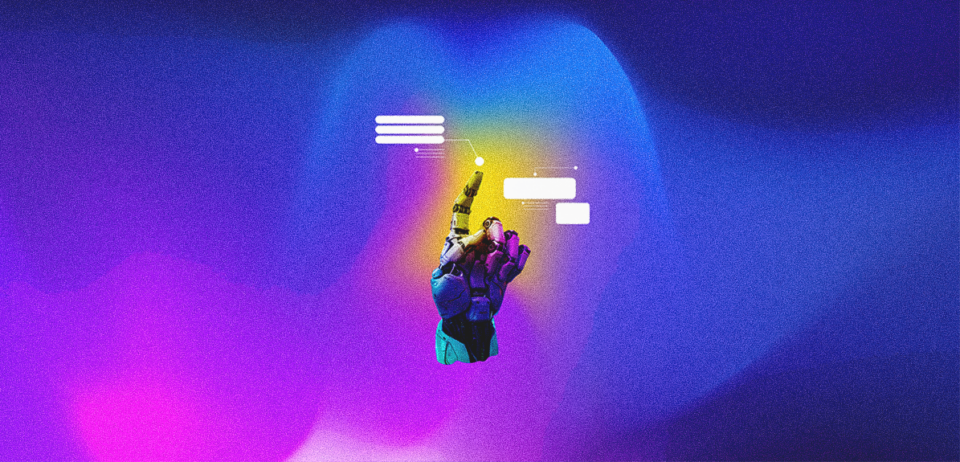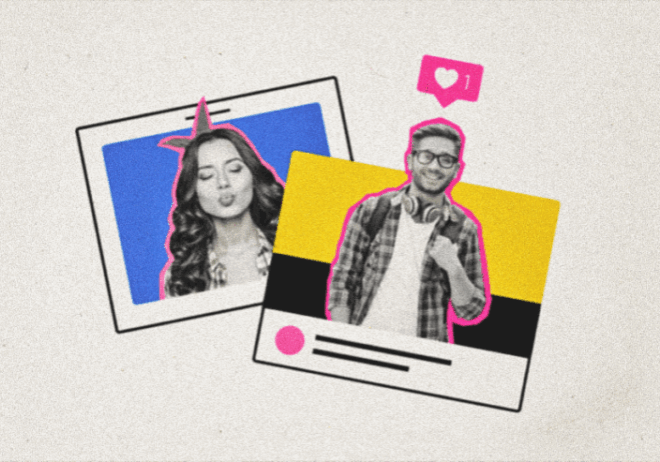
From Filters to AI Creative Photos: How AI is Redefining Content
How can we forget the days when social media was all about just finding a good filter for your photo? Depending on your mood, apply a Valencia or Jakarta filter, add some contrast, and your shot is ready to be shared on social media. It added all the coolness to your photo with minimal effort, much like a trustworthy Instagram filter.
But things have evolved. AI is now the engine of creation rather than only a supporting effect. No longer just a tool for enhancing images, artificial intelligence is becoming the engine of creativity, shaping how content is produced, shared, and consumed on social media.
From real-time video editing to AI-generated art, brands and creators alike are leveraging artificial intelligence to push creative boundaries. But is this the future of social media content, or are we just in another tech-driven hype cycle?
Let’s talk about the AI effect: More than just pretty pictures
AI creativity isn’t just transforming photos to look better—but it’s changing how content is conceived. Platforms like TikTok, Instagram, and Snapchat are integrating AI tools that can do everything from suggesting captions to fully generating video scripts. Here’s how AI is transforming social media content:
AI-Generated Influencers: Virtual influencers like Shudu Gram have taken the social media world by storm. Shudu, an AI-powered supermodel, has worked with global brands like Balmain and Fenty Beauty, captivating audiences with her hyper-realistic features. These AI influencers are designed to engage with audiences just like human influencers, complete with tailored storylines, AI-generated voices, and even ‘scandals’ to keep followers hooked.
But what does this mean for the future of influencers? AI-generated personalities are pushing the limits of influence and posing issues with engagement and authenticity. Could these virtual influencers replace real ones? The conversation around AI-generated personas is still unfolding.
AI-Powered Content Creation: It is no longer necessary for creators to invest hours in crafting the ideal YouTube script or tweet. AI tools like ChatGPT, Jasper, and Copy.ai are streamlining content creation. With just a few prompts, these tools can generate high-quality content that aligns with the creator’s tone and trending topics in seconds. This technology boosts efficiency while maintaining the creative integrity of the content, giving creators more time to focus on other aspects of their craft.
Filters Are Out; AI-Generated Images Are In: Remember when the best Instagram posts were all about finding the perfect filter? Those days are long gone. Today, platforms like Instagram are moving towards AI-generated images. Tools like DALL·E and Midjourney allow users to create entirely new, customized visuals with just a few words. AI is making it possible to create content that goes well beyond conventional editing, whether it be futuristic portraiture or commercial logos. AI creative photos are now opening up entirely new possibilities for creators, allowing them to generate visuals with a level of personalization and creativity that was once reserved for professional designers.
AI’s role in the social media economy
AI is revolutionizing the way brands approach content creation on social media, shifting away from traditional influencer reliance to more AI-powered campaigns that reduce costs and increase engagement. AI’s real-time audience behavior analysis enables marketers to mass tailor information without the need for costly A/B testing. For instance, if a particular video style is popular, AI might recommend producing content that is similar but somewhat different, assisting brands in staying current and improving audience engagement.
Automated engagement is another key benefit of AI’s role in the social media landscape. AI-powered chatbots and automated responses allow brands to interact with followers instantly, keeping conversations going without human intervention. Additionally, AI can monitor comments for sentiment, alerting brands to potential issues before they escalate, thus improving customer experiences and strengthening relationships with audiences.
Today, it is impossible to neglect the influence of AI on ad creation. By automatically creating and optimizing ad campaigns in real-time, tools like Google’s Performance Max and Meta’s Advantage+ are simplifying the process. These AI tools enable brands to launch high-performing ads with minimal effort, significantly reducing costs while maximizing ROI, making it easier for advertisers to get the most out of their budget.
AI role in social media content
With a bang in digital marketing, the AI revolution is just beginning, and its impact on social media content is set to expand even further. One exciting development is the potential for hyper-realistic deepfake content. While deepfakes have caused controversy, they also give marketers new opportunities. Imagine brand ambassadors creating content without ever stepping in front of a camera. AI-powered video synthesis could allow for personalized content at a scale previously unseen, bypassing the need for new recordings. This could radically shift how brands use ambassadors, but it also raises important ethical questions surrounding authenticity and trust.
AI-generated music is another area poised for disruption. With platforms like TikTok and Instagram driven by trending sounds, AI could enable creators to generate custom soundtracks that perfectly complement their videos, sidestepping copyright issues. This would provide influencers, brands, and content creators with new creative freedom, opening the door to more dynamic and personalized content experiences.
Looking to the future, AI will play a key role in the development of AI-powered virtual reality (VR) content, particularly as the metaverse continues to grow. From AI-designed virtual spaces to interactive storytelling, social media is on the brink of becoming more immersive than ever before. As brands explore VR’s potential, AI will be essential for creating engaging, personalized experiences that captivate and resonate with users. This evolution promises to redefine how brands interact with their audiences, moving beyond traditional content into immersive environments.
What effects will AI have on human creators?
Yes, it’s true. AI is undeniably changing social media content. But the question remains the same: does it enhance creativity or replace it? The reality is, AI is a tool that is operated by humans. Like Photoshop revolutionized design and Instagram changed photography, AI is simply the next new evolution in content creation.
In the coming days, brands and creators who can successfully combine human narrative with AI-driven content will be the most successful. Authenticity will still reign supreme, and those who use AI to enhance rather than replace human creativity will stand out in the ever-crowded social media landscape.
Cut to the chase
AI is revolutionizing social media, reshaping content creation, engagement, and advertising strategies, while offering immersive experiences and personalized content, making it crucial for brands to merge AI with human creativity for success.

